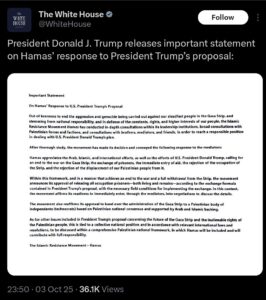
A Democratic House member from Oregon has become the latest lawmaker to quit the stock-trading game after twice violating the disclosure provisions of a federal transparency and conflicts-of-interest law.
Rep. Val Hoyle confirmed to OpenSecrets that her husband’s retirement account, which contained dozens of individual stocks, “is being transferred into a mutual fund to avoid any potential conflict of interest.” Her decision comes at a moment when the U.S. Senate and House of Representatives are both actively considering bipartisan bills that would force their members to give up stock trading altogether.
OpenSecrets earlier this month reported that Hoyle was weeks or months late disclosing 217 stock trades by her husband, Stephen, thereby violating the Stop Trading on Congressional Knowledge Act, according to a review of congressional financial records. She was also late filing an annual personal financial disclosure report mandated by federal law.
Among the dozens of corporate stock transactions Hoyle was late reporting were trades involving Google parent Alphabet, Amazon, Apple, Bank of America, Costco, CVS Health, ExxonMobil, FedEx, Goldman Sachs, Hilton Worldwide, Johnson & Johnson, JP Morgan Chase & Co., Marriott International, Facebook parent Meta Platforms, Microsoft, Netflix, NVIDIA, Oracle, Target, Uber, UnitedHealth Group, Visa, Walt Disney Company, Wells Fargo and defense contractors Lockheed Martin and Northrop Grumman.
Combined value: about $500,000, Hoyle said.
Hoyle spokesperson Catherine White added that the congresswoman was unaware that her husband’s financial adviser had purchased individual stocks for a retirement account, and “after learning about the individual stock purchases, Mr. Hoyle immediately worked with his financial advisor to move the stocks into mutual funds.”
Hoyle joins several other members of Congress who used to trade stocks regularly until violating the STOCK Act, including Sen. Peter Welch (D) of Vermont and Reps. George Whitesides (D) of California, Ritchie Torres (D) of New York and Greg Landsman (D) of Ohio. Rep. Julie Johnson (D) of Texas also told NOTUS she’s giving up stock trading after receiving attention for a flurry of trades she made immediately before and after President Donald Trump’s April 2 “Liberation Day” tariff declaration, which temporarily sent financial markets reeling.
The STOCK Act requires members of Congress to publicly disclose any individual stock trade within 45 days of making it.
But in 2025 alone, numerous members of Congress have violated the STOCK Act’s public disclosure provisions. On the Republican side, the list includes Sen. Markwayne Mullin and Reps. Dan Meuser, Lisa McClain, Austin Scott, Neal Dunn, Scott Franklin, Brandon Gill, Hal Rogers, Tim Moore, Troy Nehls and Rich McCormick.
STOCK Act violators among Democrats include Reps. Debbie Wasserman Schultz, Dwight Evans, Jamie Raskin, Chellie Pingree, Shri Thanedar, Jonathan Jackson, Donald Norcross, Jared Huffman, Tom Suozzi, George Latimer, Whitesides, Torres and Hoyle.
Dozens of other lawmakers have violated the STOCK Act in recent years.
Despite her STOCK Act violations, Hoyle has joined with other lawmakers on the right and left to call for a congressional stock-trading ban. At present, a bipartisan group in the House is pressing the Restore Trust in Congress Act, an amalgamation of several previously introduced stock-ban bills. In July, a Senate committee advanced a similar bipartisan measure, known as the HONEST Act, to the full chamber.
“It is important that members of Congress make decisions without conflicts of interest — not just in terms of their votes, but also in how they exercise influence, oversight, and everything that they do,” said Morris Pearl, chairman of Patriotic Millionaires, a coalition of wealthy Americans who advocate for good government and a “vibrant and equitable” economy.
He added: “Public service is a public trust, and it is not unreasonable to ask our elected officials to also avoid even the appearance of conflicts of interest. If people think, or even suspect, that they have a conflict, that is just as bad as actually having a conflict. Ensuring that all politicians are acting in our country’s best interest, not their own financial interest, is important.”
On Tuesday, with the federal government poised to shut down, Democracy Defenders Action, a bipartisan organization that aims to “fight autocracy, protect the Constitution and safeguard American democracy,” sent a letter to lawmakers urging them to follow Hoyle’s example.
“Unfortunately, in past shutdowns, certain members of Congress and their families have continued to trade stocks and other securities. This raises the concern whether they might have been trying to time the market, which gives the impression that their personal financial interests outweighed their duty to the public,” wrote Virginia Canter, Democracy Defenders Action’s ethics and anticorruption chief counsel and director.
The group is “urging every member of Congress — Republican, Democrat, Independent — to cease all securities trading for themselves, their spouses, and their dependent children for the duration of any government shutdown. No exceptions. No loopholes. No excuses.”
Dave Levinthal is a Washington, D.C.-based investigative journalist. He served as OpenSecrets’ editorial and communications director from 2009 to 2011.















